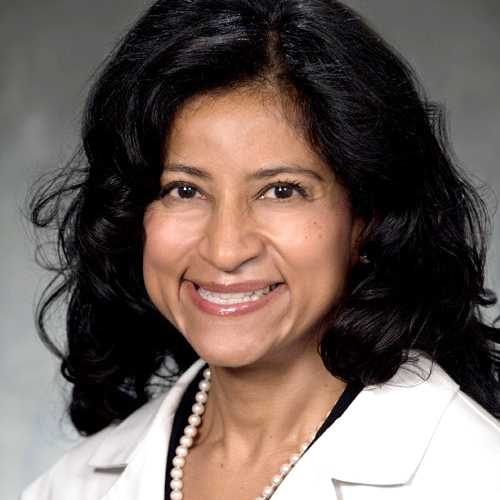Carmen E. Guerra
MD, MSCE, FACP, FCPP
Vice Chair of Diversity and Inclusion, Perelman School of Medicine
Fellow Since 2017


What initially interested you about joining the College?
I first learned about the College from Dr. Sankey Williams, who was my chief in the division of general internal medicine at Penn. The College is not only a historic institution that preserves the history and legacy of medicine, but it also one that serves its community. Its educational programs in particular appealed to me because they expose students who might not otherwise have the opportunity to be exposed to the field of medicine to what I still believe is the most fulfilling career one could ever be privileged to have.
You have done a lot of work with cancer screening and prevention in vulnerable populations. Tell us about that work and the populations involved.
I build programs to help vulnerable populations – underrepresented minorities, immigrants, low socio-economic status, and un- and underinsured individuals – better access cancer screening tests by building cancer screening navigation programs. The original concept of patient navigation was proposed by Dr. Harold Freeman, a surgeon in NYC, after he observed that vulnerable patients present with more advanced stages of cancer. These program address a wide range of barriers from knowledge and awareness and negative attitudes to language, scheduling, preparation and transportation barriers. Dozens of randomized trials have shown that navigation programs help patients complete cancer screening tests and improve operational efficiency for our healthcare e.g. by decreasing no show rates.
What do you feel is the biggest barrier to these populations seeking and obtaining good care?
This depends on the population, but for many populations it is the cost of health care. Currently the rate of uninsured individuals is approximately 11% and these individuals receive inadequate care and almost never seek preventive care.
How do you feel we can improve health literacy among all segments of our society?
I think helping to identify individuals with poor health literacy is the first challenge. These individuals are ashamed to tell others of their low health literacy and as a result, we often do not know who we need to help. Another way we can improve health literacy is through videos that replace written material. Videos are so easy to make nowadays – we can create these with our iPhones because the technology is so good. For our colorectal cancer navigation program, we took pages of instructions on how to prepare, which included how to make and take the prep, diet and medication instructions and created a 5 min video that patients could view on their phones. One of my ideas is that with artificial intelligence, we might be able to take a photo of written material and ask our phones “what does this mean?’ and the default would be a 6th grade reading level translation.
What is one area of the College with which you’d like to get more involved?
I am most excited about becoming involved with the that serve students that are underrepresented in the field of medicine. I have already had a wonderful first meeting with Jacqui Bowman and her great team and really look forward to working with all of them.
Tell us about one of your favorite items in the Library or the Museum?
I have always been fascinated by Dr. Albert Einstein. I often borrow his wise quotes because they exemplify not only his genius but also his nobility. Thus, the slides of Albert Einstein’s brain and the story of how they came to be is what I find most fascinating.